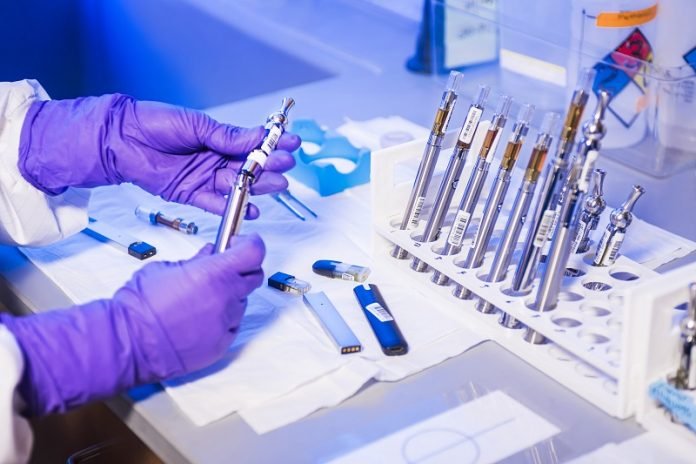
In a new study, Johns Hopkins, researchers found that e-cigarette use is associated with increased odds of prediabetes.
The findings add important evidence about the health effects of e-cigarettes and can help shape public health best practices.
According to CDC, traditional cigarette smokers are 30% to 40% more likely than non-smokers to develop type 2 diabetes, which increases their risk for heart disease, stroke, and peripheral vascular diseases.
E-cigarettes are sometimes promoted as a risk reduction product for current traditional cigarette smokers. The use of e-cigarettes is rising among younger population, which remains a public health concern.
In the study, the team analyzed 2016–2018 data from the Behavioral Risk Factor Surveillance System (BRFSS).
Among the 600,046 respondents, 9%, more than 66,000 individuals, were current e-cigarette users who self-reported prediabetes diagnoses.
The data also showed that e-cigarette users have a higher prevalence of high-risk lifestyle factors and worse self-related mental and physical health status than non-smokers.
Survey respondents were 50.4% female, 67.7% non-Hispanic White, 12.2% non-Hispanic Black, 5% Hispanic, and 28.6% were age 35 or older.
In this representative sample of US adults, e-cigarette use was linked to greater odds of prediabetes compared to those who did not use e-cigarettes or traditional cigarettes.
The association of e-cigarettes with prediabetes heightens significant concerns for public health officials.
The team says in the case of cigarette smoking, nicotine has a detrimental effect on insulin action, and it appears that e-cigarettes may also have the same effect.
Prediabetes is reversible with lifestyle management. Based on these findings, the authors make a compelling recommendation for targeting the reduction in e-cigarette use and education of young adults as a therapeutic lifestyle management strategy for the reduction of diabetes risk.
Prediabetes is defined as the presence of impaired fasting glucose (greater than 100—125 mg/dL), impaired glucose tolerance (greater than 140–199 mg/dL two hours after a 75-g oral intake of glucose), or hemoglobin A1c between 5.7&–6.4%), which indicate an intermediate glycemic state between normal glycemia and diabetes.
The CDC has reported that prediabetes has become increasingly common in the past few decades, and recent estimates indicate that 38% of American adults have this condition.
If you care about smoking, please read studies that smoking may increase heart disease risk by 200%, and cigarette smoke may make MRSA superbug bacterium more drug-resistant.
For more information about smoking and your health, please see recent studies that e-cigarette smoke may cause lung cancer, bladder disease, and results showing that E-cigarettes linked to gene changes that can cause disease.
The study is published in the American Journal of Preventive Medicine and was conducted by Shyam Biswal et al.
Copyright © 2022 Knowridge Science Report. All rights reserved.



